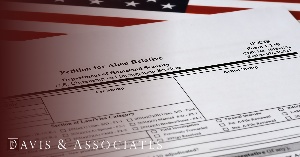- Home - News
- Elections 2024
- News Archive
- Crime & Punishment
- Politics
- Regional
- Editorial
- Health
- Ghanaians Abroad
- Tabloid
- Africa
- Religion
- Photo Archives
- Press Release
General News of Wednesday, 16 April 2025
Source: www.ghanawebbers.com
Ghanaians in U.S. face penalties if they don’t carry legal documents
Ghanaians in the United States are urged to follow a new immigration rule. This rule requires all foreign nationals to register with authorities. They must also carry proof of their legal status at all times.
The rule comes from an executive order by former President Donald Trump. The U.S. Department of Homeland Security (DHS) and USCIS are enforcing it. It took effect last Friday and applies to all non-U.S. citizens aged 18 and older.
This includes Ghanaians, Nigerians, and other African nationals. According to USCIS, everyone considered a “foreign national” must have proof of legal status. Acceptable documents include a Green Card, visa, or I-94 entry record.
Who Needs to Register?
All non-citizens aged 18 and above must register. This includes visitors, students, workers, and Green Card holders. Canadians staying more than 30 days must also register. Parents must register children under 14 as well.
Once children turn 14, they need to re-register within 30 days. They will also undergo biometric processing (fingerprinting). Those who have registered before should update their information online using Form G-325R.
What Happens If You Don’t Comply?
Not complying with the rule can lead to serious consequences. These may include fines or misdemeanor charges. There is also a risk of jail time or random checks by police or immigration officers.
Local law enforcement can now ask for proof of registration too.
Legal Experts Urge Action
Immigration lawyers warn that this rule is serious. An attorney in New York stated that Ghanaians and Nigerians should not ignore it. If you’ve been in the U.S. for over 30 days without proper papers, you could face severe consequences.
Steps You Must Take:
1. Register Online: Fill out Form G-325R on the USCIS website.
2. Get Biometric Screening: Attend fingerprinting if required.
3. Carry Your Papers: Always have your Green Card, visa, or I-94 with you.
4. Register Your Children: Do this before they turn 14; re-register them afterward.
Ghanaians in the U.S. are encouraged to consult immigration experts regularly and comply with these new rules promptly.











